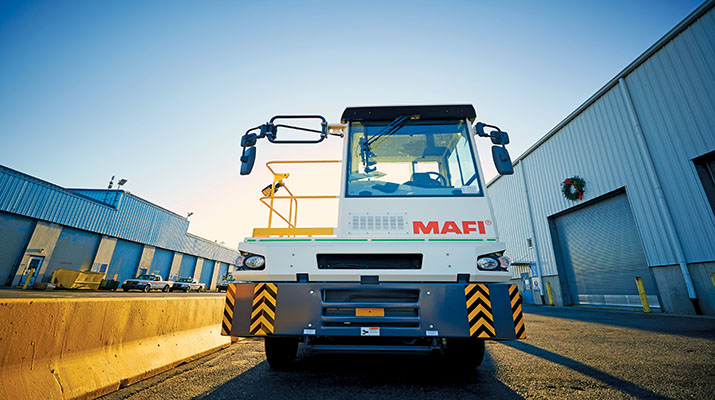New study: Propane terminal tractors run cleaner than diesel

Image: PERC
The Propane Education & Research Council (PERC) and the Port Newark Container Terminal (PNCT) released data from a new study that shows a reduction in emissions from using propane-powered terminal tractors compared to diesel. Port tractors account for most of the cargo handling equipment emissions at terminals, according to the EPA.
Researchers at PNCT gathered emissions data from a MAFI-manufactured propane terminal tractor and Tier 4 diesel technologies. According to the results, the propane-powered tractor yielded 99 percent less nitrogen oxide (NOx) composite and idle emissions than either diesel tractor. The tractor using propane displayed near-zero NOx and particulate matter emissions. Additionally, the propane tractor produced 77.5 percent less total hydrocarbon idle emissions, 14 percent less brake-specific carbon dioxide emissions and 75 percent less total particulate matter emissions than the diesel tractors.
The tractor features PSI’s California Air Resources Board-certified .02 NOx 8.8-liter propane engine. PSI says the ultra-low NOx, heavy-duty propane engine is one of the cleanest engines available in the market. The propane engine competes with diesel engines on fuel efficiency, versatility and performance, providing 270 horsepower with 565 lb.-ft. of torque.
“This near-zero emissions technology terminal tractor is available now for an affordable price,” says Gavin Hale, vice president of business development at PERC. “Propane technology adoptions are continuing to grow at ports, terminals and warehouses throughout the country to eliminate diesel emissions and make significant strides toward greenhouse gas reduction.”
Along with the inclusion of propane being more affordable, grant money is also available through the Diesel Emissions Reduction Act to support the transition to propane-powered fleet technology. This includes terminal tractors, propane autogas fleet vehicles and energy production technology.
















